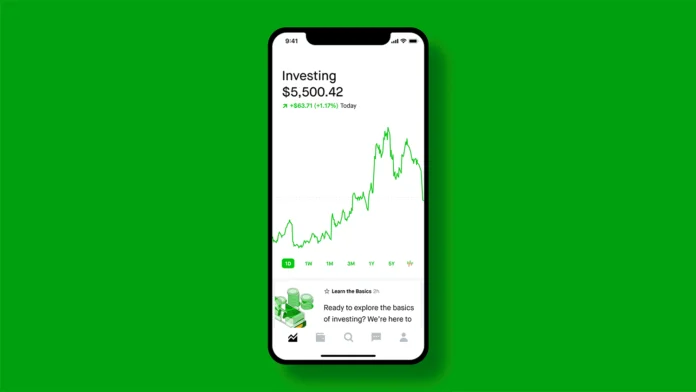Robinhood is a “popular commission-free investing and stock trading platform that provides investment and brokerage services through its titular smartphone application” Robinhood has exploded in growth having only a million customers in 2016 and in 2024 they had 23.3 million customers (Game over: Robinhood pays $7.5 million to resolve “gamification” securities violations: Insights: Vinson & Elkins LLP, 2024). The FinTech (financial technology) application has generated much interest with younger generations because of its “notoriously usable, accessible, and satisfying user interface for its app-based trading platform” (Game over: Robinhood pays $7.5 million to resolve “gamification” securities violations: Insights: Vinson & Elkins LLP, 2024). With this large generation of interest and new found responsibility Robinhood was put in an awkward space. I was curious to find how the affect of ‘gamification’ has had it’s financial gain and legal troubles, and what insights that may deliver my research.
In particular, the MA Securities Division took issue with Robinhood’s:
use of digital confetti that would rain down from the top of the screen after a customer completed their first stock trade;
in-app offers of free stock rewards for new customers—highlighting the possibility to receive stocks such as “Microsoft, Visa, or Apple” despite a low probability of receiving shares of those companies—which then required customers to mimic the motion of “scratching off” a lottery ticket in order to reveal the free stock;
advertisements promising existing customers the ability to earn up to $500 per year in additional free stock rewards by recommending the Robinhood app to others;
creation of various lists of stocks, chosen based on their popularity on Robinhood’s platform, and then featuring those lists on the home screen of the application;
use of various formats of “push notifications” to customer devices, often including popular “emojis” within the message, directing the customer to invest in a particular Robinhood-created list of stocks or describing specific changes in the value of stocks held in their accounts; and
employment of a mechanism by which customers could improve their position on an early access waitlist by “tapping” a digital representation of a debit card displayed in the Robinhood app up to 1,000 times per day. The application displayed a message to customers who “tapped” on the card 1,000 times in a day that they were “out of taps today! Come back tomorrow if you’re feeling tappy.”3
As a company, Robinhood makes its profits through rebates, margin interest, stock loans, uninvested cash, and cash management—all of which can become more lucrative as the platform gains more users and hosts more daily trading activity. While the digital engagement practices may have been effective at garnering new customers and additional trading, they were not tailored to consider—much less promote—the individual needs, goals, or risk profile of the customer. From the MA Securities Division’s perspective, Robinhood’s use of the digital engagement practices therefore violated the Massachusetts Fiduciary Rule by frequently and indiscriminately directing investors towards making trades (activity that served Robinhood’s financial interests) without taking into consideration the interests of any individual investor or failing to put into place sufficient safeguards to protect inexperienced investors.
”Given the overwhelming growth in customers and engagement Robinhood enjoyed over the past decade, broker-dealers and investment advisors may feel driven to remodel their own digital investment platforms to promote similar usability and engagement. However, the rules governing the line between effective and problematic engagement practices are still being developed, and ultimately may result in diverging or overlapping standards as both state and federal securities regulators weigh in. Broker-dealers and investment advisors subject to state or federal securities regulation are encouraged to work closely with counsel to both stay up to date on the relevant rules and conduct compliance reviews of any contemplated app-features or engagement practices that may run the risk of drawing a skeptical eye from regulators (Game over: Robinhood pays $7.5 million to resolve “gamification” securities violations: Insights: Vinson & Elkins LLP, 2024).
As I have personal experience with the Robinhood, I can attest to the usability and the ‘fun’ I had while using it. It requires no prior knowledge of stocks or trading to be able to invest money, and the fun factor inspires you to continue to invest your money. Although the product itself has amazing interface, the care of the user is not in the forefront. Robinhood does not “promote—the individual needs, goals, or risk profile”, which puts an inexperienced user in a dangerous position (Game over: Robinhood pays $7.5 million to resolve “gamification” securities violations: Insights: Vinson & Elkins LLP, 2024). I find it interesting that you can tell that the user was involved in the product production, but the well-being of the user was not considered. With this being the case how can design use ‘fun’ interfaces, while also having their financial well-being cared for?
Source
Game over: Robinhood pays $7.5 million to resolve “gamification” securities violations: Insights: Vinson & Elkins LLP. Vinson & Elkins. (2024, July 1). https://www.velaw.com/insights/game-over-robinhood-pays-7-5-million-to-resolve-gamification-securities-violations/




